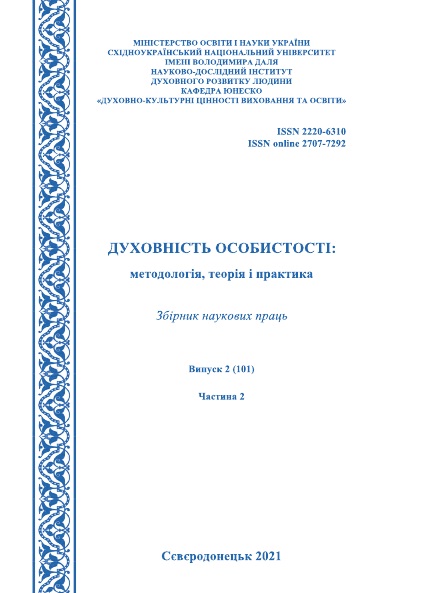THE VALUE-NORMATIVE READINESS OF FUTURE SOCIAL TEACHERS TO ORGANIZE SOCIAL REHABILITATION OF PERSONALITY IN THE CONDITIONS OF EDUCATIONAL INSTITUTIONS
DOI:
https://doi.org/10.33216/2220-6310-2021-101-2_2-151-162Keywords:
Value-normative readiness, optimism, positivity, feeling of satisfaction, happiness, leadership philosophyAbstract
Scientific-theoretical views on the problem of formation of value-normative readiness of future social pedagogues for the organization of social rehabilitation of the individual in the conditions of educational institutions are analyzed. The urgency of its solution is substantiated. The results of the observational experiment are presented. They show mostly low level of formation of such readiness. It depicts pessimistic perception of the world by students; insecurity, low self-esteem; underestimated or low level of happiness. The main components of value-normative readiness are revealed, such as: the focus on the positive in life (as it is more common for the optimists to use active and effective ways to solve professional and life problems); formation of leadership philosophy (as a specialist engaged in social rehabilitation should be able to influence on others, lead and persuade); formation of a sense of freedom on the basis of morality, religion and traditions; life satisfaction as a norm of life; value-based attitude to own health (which includes acquaintance with various methods of improving own health and with preventive methods of different levels. The need for the formation of controlled optimism, i.e. a controlled change of thinking style from negative to positive, is noted. A description of the procedure for organizing a formative experiment is made. It included the gradual formation of the main components of value-normative readiness during the study of basic disciplines. The results of the formative experiment are presented and analyzed.

